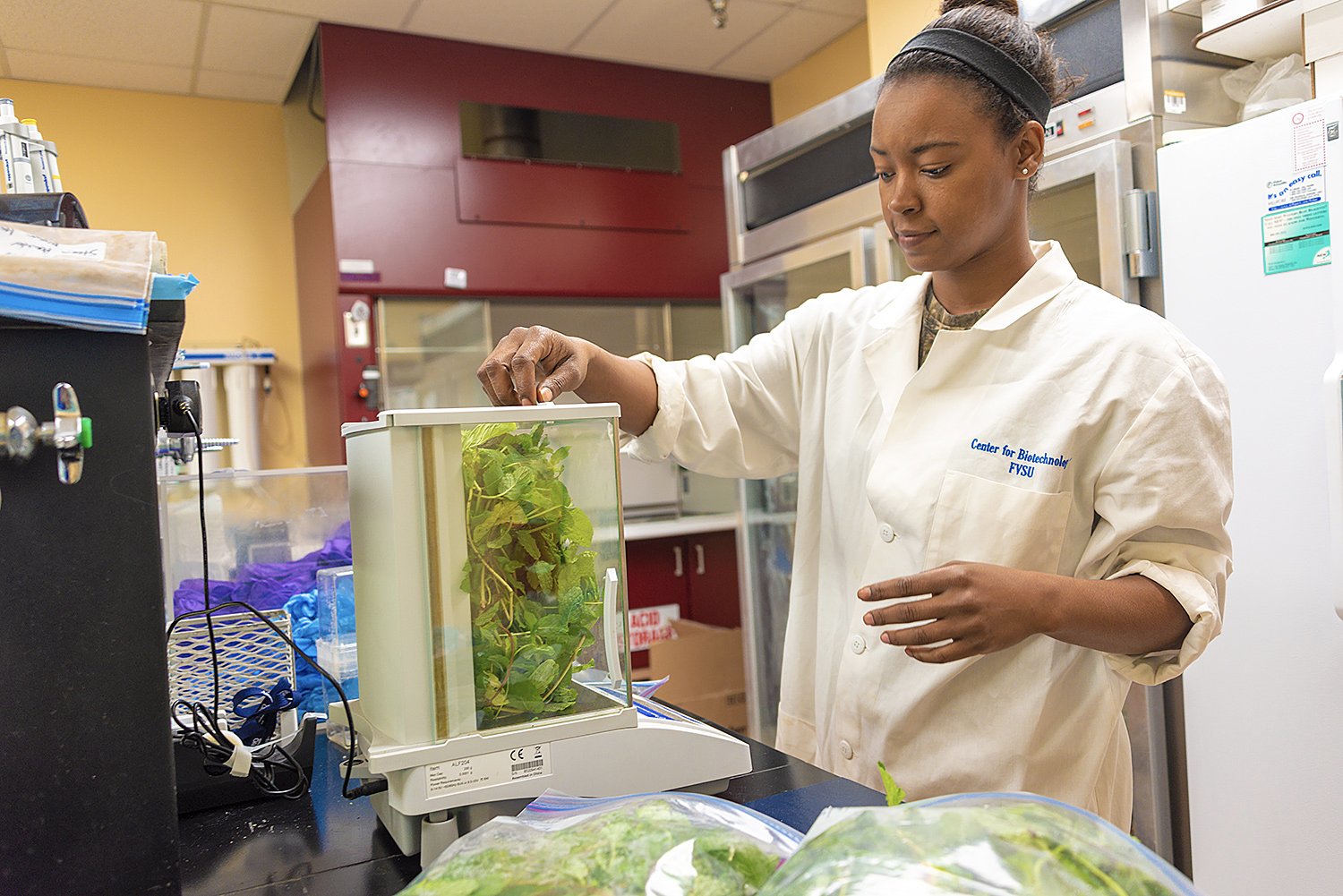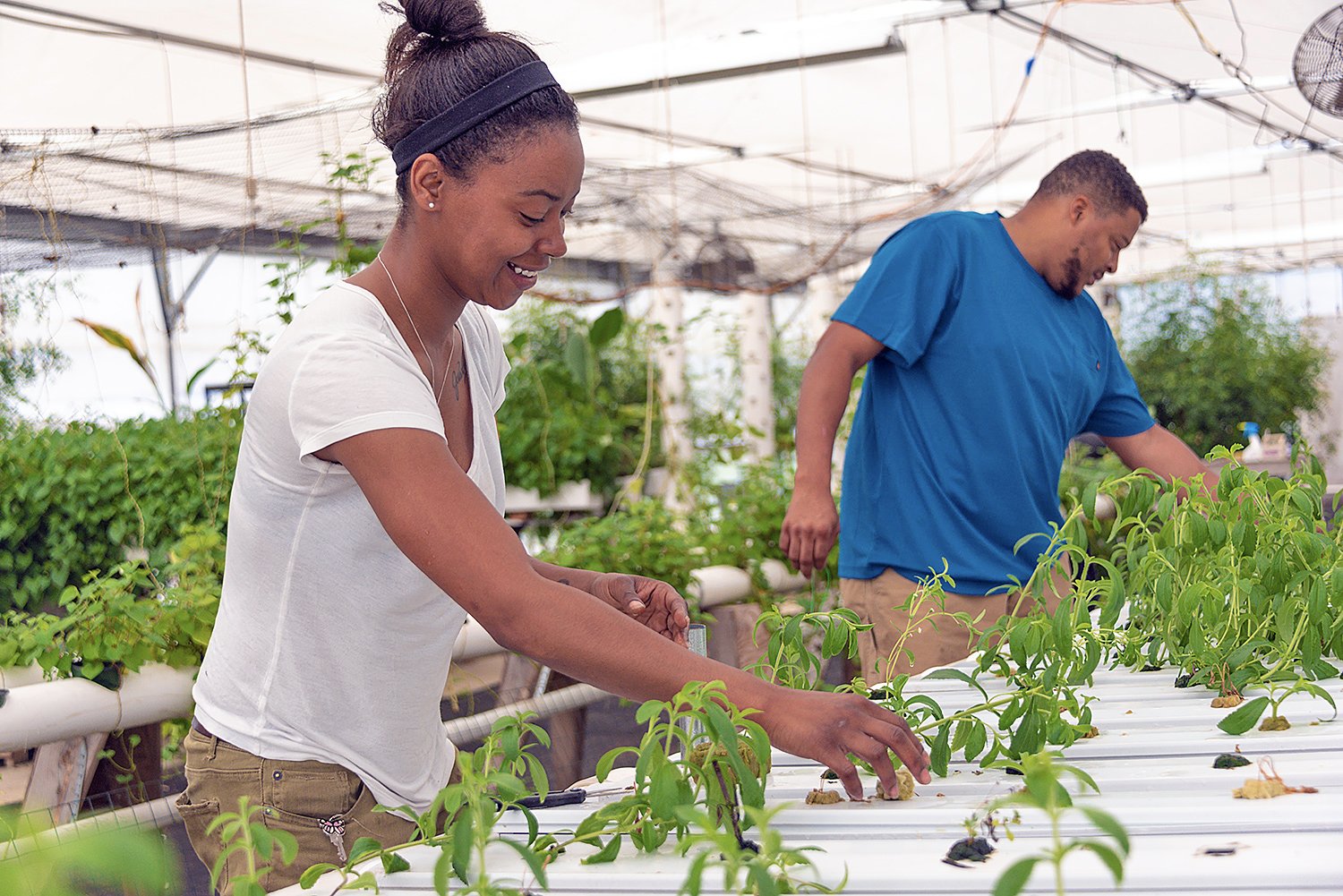Twenty-five thousand people are dying of starvation every day, according to the Food and Agriculture Organization of the United Nations. Feeding a population expected to grow from 7.7 billion to 9.7 billion in the next 30 years means taking innovative measures.
Seeing a need, Fort Valley State University biotechnology graduate student D’Amber Jones decided to explore a sustainable solution. She is taking a non-traditional approach — growing plants without soil.
“Population growth puts a demand on food production, and food production puts a demand on our already finite natural resources,” she said. “Seeing how hydroponic systems could be used to help alleviate or conserve our water and food crisis inspired me.”
This motivation led her to research cultivated plants under hydroponic conditions compared to traditional agriculture.
Currently in the first phase of her research, the 29-year-old is growing bean and cucumber plants using a deep water culture hydroponic system (suspending a plant’s roots in a solution of nutrient-rich, oxygenated water) and a tower garden (a vertical aeroponic growing system).
The first process is germinating the seeds in a controlled environment (in vitro) and then transplantation. “The plants in the field will be grown in soil, and the plants in hydroponics will be put in rockwool (mineral wool used as a medium to hold the plant),” Jones explained.
Subsequently, she will compare the yields and food quality from the two hydroponic systems to raised beds in the field and to seeds planted in the ground. She plans to grow four to six food crops in fall 2019 for the second phase of her research. She will use additional hydroponic systems versus the field and raised beds.
“Hydroponics uses less land and less water and grows more crops,” Jones said. “You can collect more harvest than traditional agriculture. We have one harvest season, but with hydroponics, you could have three, if not more.”
She said the advantages of hydroponic farming include high food production, water and land conservation, space efficiency and easy operation. “It could help expand self-sufficiency in communities for farmers and students alike,” she noted.

In addition to bean and cucumber plants, Jones is growing mint using hydroponic systems and is interested in growing stevia plants. Both stevia and mint have health benefits. Stevia is non-caloric, possesses anti-inflammatory properties and regulates insulin and glucose levels. Jones said her mother sparked her interest in growing stevia because she has diabetes and had to change her eating habits.
Mint helps alleviate digestive issues and can help repel insects. “I am using the foliage of specialty crops to create organic pesticides,” Jones said. “That way, everything can stay organic in the hydroponic systems.”
Jones, who earned a bachelor’s degree in plant science-biotechnology from FVSU in 2018, said her overall goal is to help people by sharing knowledge through her research.
“Growing plants and food is nothing new to me. I grew up in the country on acres of land watching my grandparents grow tomatoes, corn, peppers and watermelon. Growing up in that environment, I saw how I could use science and my love for plant science to help make the world a better place,” Jones said.
After graduation, the young scientist aspires to be an entrepreneur who assists people interested in hydroponic farming. She also wants to own a greenhouse and create her very own hydroponic system.
Jones, a first year graduate student, is the recipient of a graduate assistantship, which helps her finance her studies. “Fort Valley is a good school. My advisers are great, and I couldn’t do it by myself,” she said.
For more information about FVSU’s Master of Science in Biotechnology Program, visit https://bit.ly/2RMWcWL.

